So what’s new in the world of interior design? It’s Japandi interior design! It’s East meets West and we will help you understand its features and how to get the look right. Considering the hectic lifestyles most of us lead, everyone craves for some peace. In fact, homeowners are turning to Zen and relaxing designs for their homes. Thus, Japandi design, based on principles of simplicity, is the perfect choice.
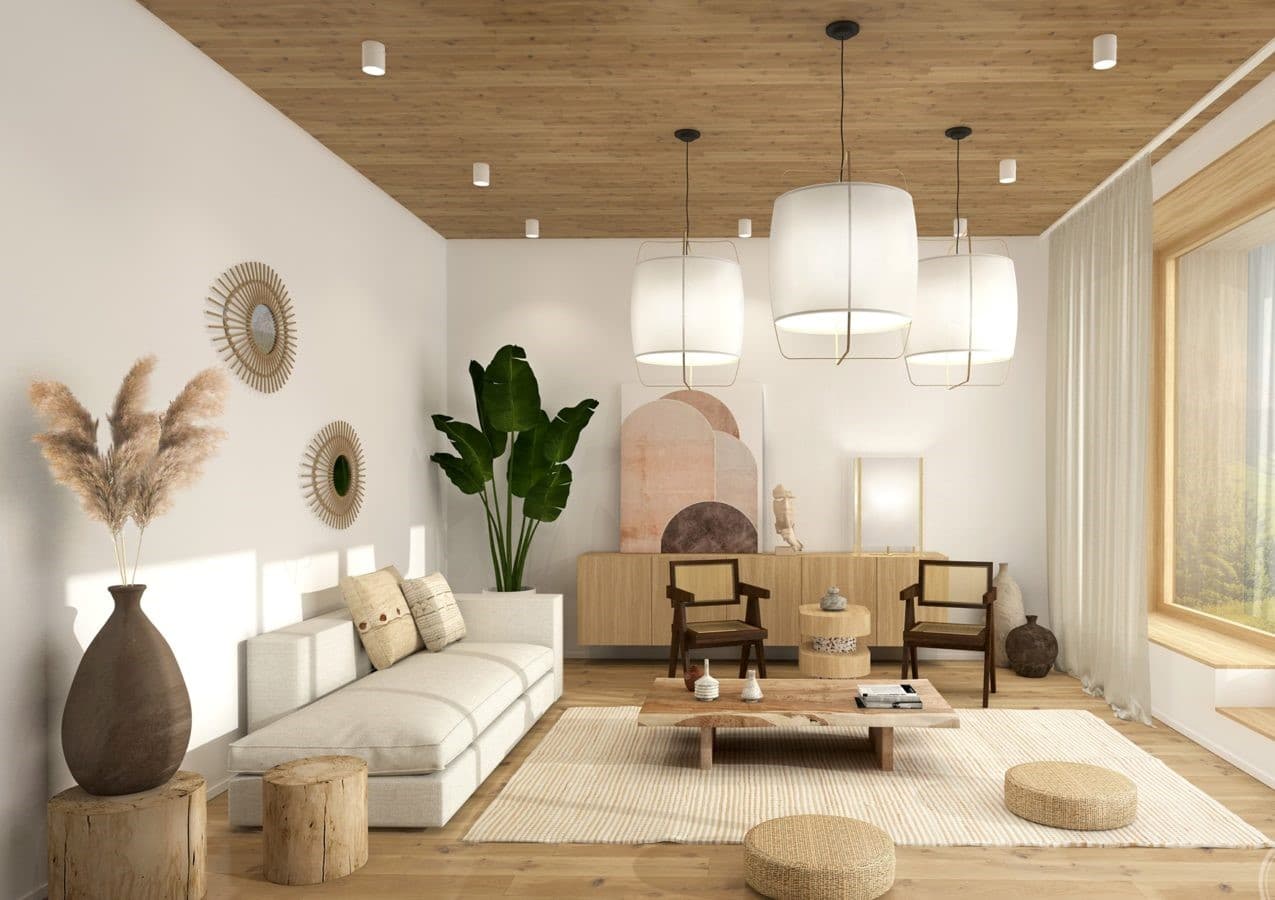
Japandi interior design is the fusion of design styles from two opposite parts of the world – Japan and Scandinavia. It’s the marriage between Japanese minimalism and Scandinavian functionality. So, when we say Japandi interiors, we’re talking about art, wabi-sabi aesthetics, warmth, hygge philosophy comfort and natural elements.
WABI SABI INTERIOR DESIGN – a design style that focuses on natural dwellings, imperfections and simple aesthetics.
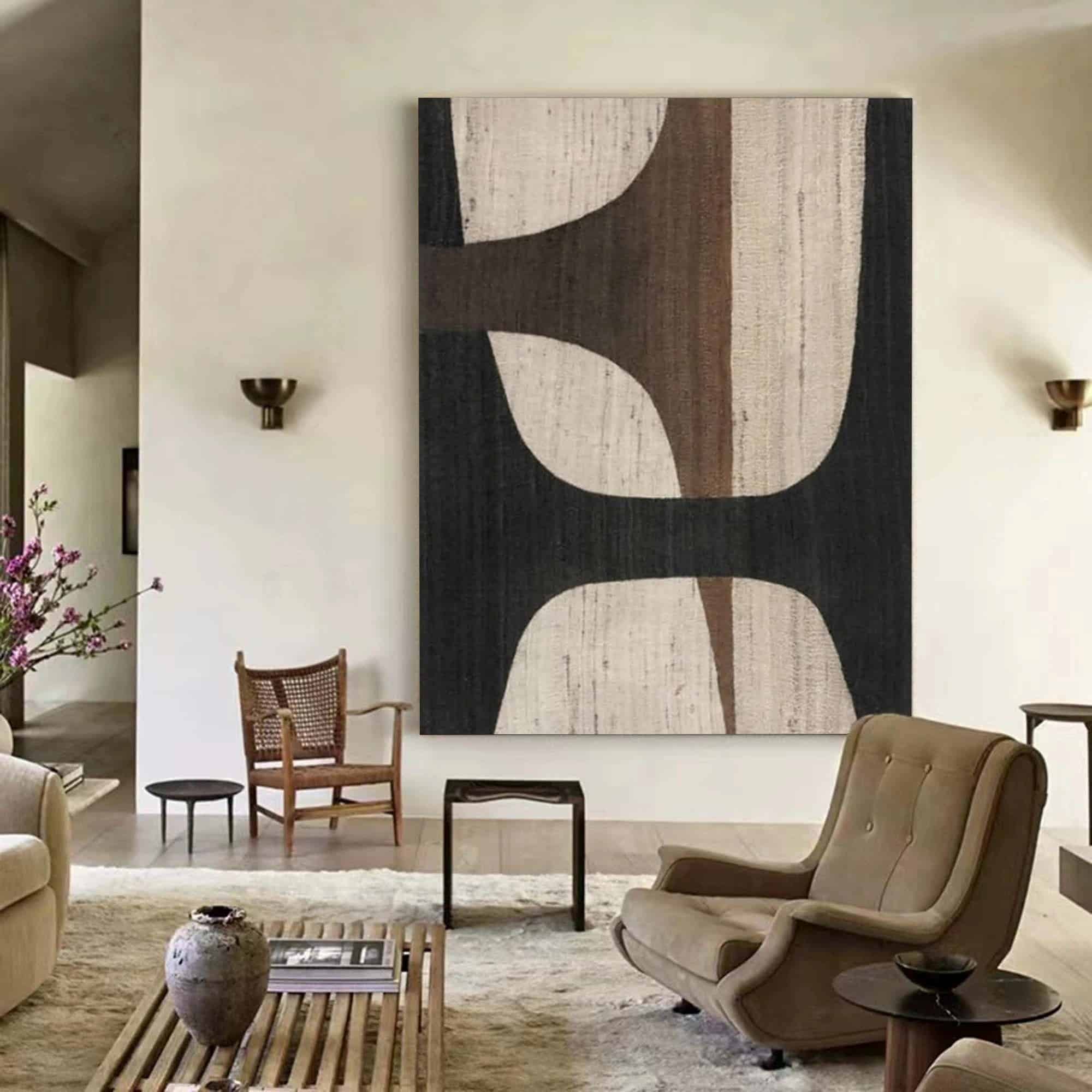
SCANDINAVIAN HYGGE – An interior style that emphasizes cozy togetherness, comfort and warmth.
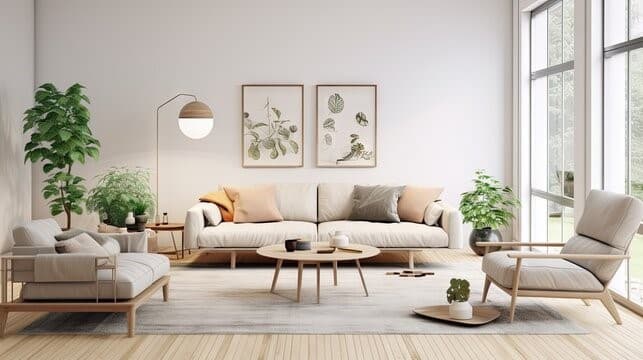
HISTORY OF JAPANDI STYLE INTERIOR DESIGN
First of all, it’s important to note that both Japanese and Nordic styles have certain similarities as they feature simplicity and minimalism. Japan had a closed border policy for more than 200 years. Once they opened their borders, artists and designers from Scandinavia started visiting Japan. They were inspired by the oriental design style that had so many similarities with their own homes. Thus began a new design style, the Japandi design.
ELEMENTS OF JAPANDI DESIGN
So how can you recognize this interior design style? Watch for the following elements:
Elements Description
Organic and natural materials — wood, stone, rattan
Neutral colors and earthy tones — brown, green, beige
Uncluttered spaces — rooms with only basics
Craftsmanship — ceramic vases, teapots, books
Hints of Green — plants
Functional Décor — decorative pieces that serve some purpose
7 JAPANDI INTERIOR DESIGN TIPS
Now that you understand what Japandi design is, let’s look at some examples and design ideas.
#1: Japandi Living Room With Natural and Sustainable Furniture
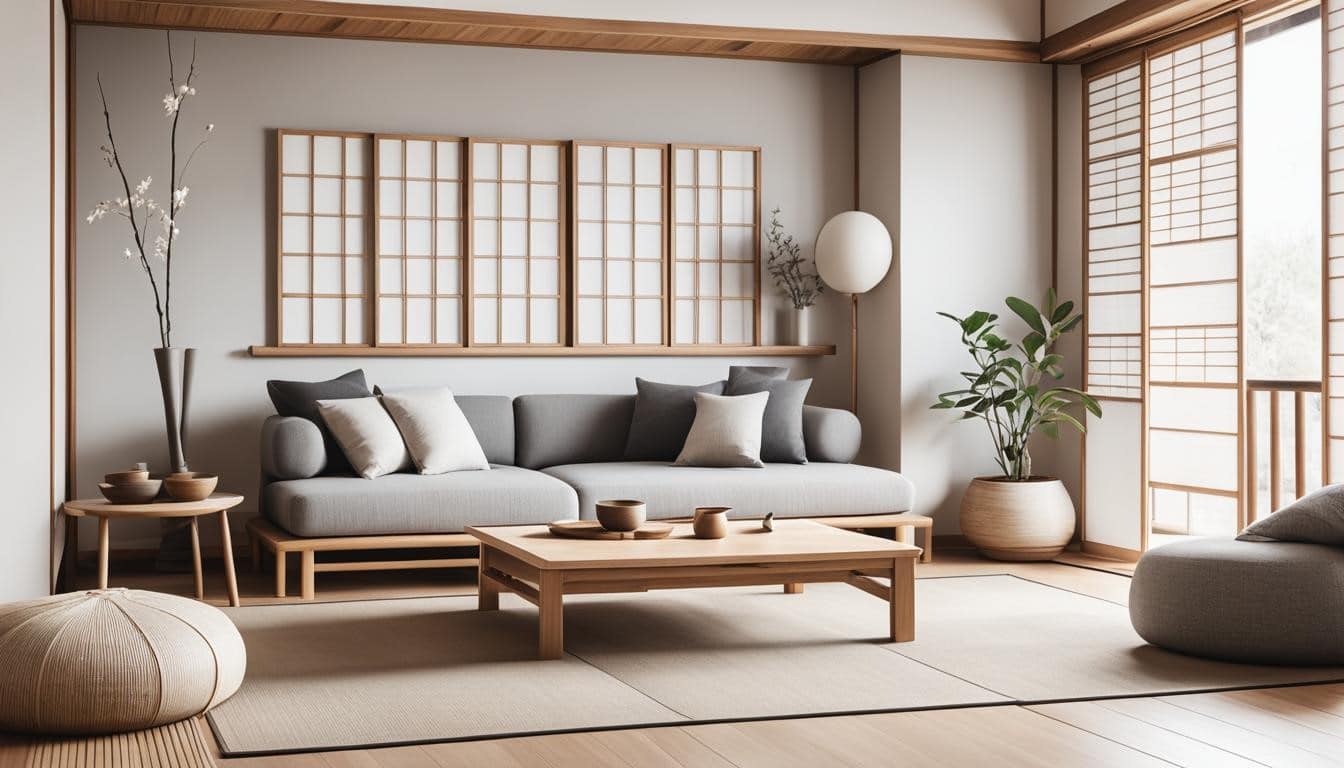
Use the right combination of colors and natural materials
— Layer natural materials like wood with neutral colors like ivory and grey
— Additionally, opt for sustainable materials as per Japanese aesthetics
— Don’t forget to choose comfortable furnishings to maintain the comfort of Scandinavian hygge
— Do your bit for the planet with natural materials like bamboo and wood for flooring and furniture
— Try to reuse and recycle as much as possible
#2: GO ZEN IN A JAPANDI BEDROOM
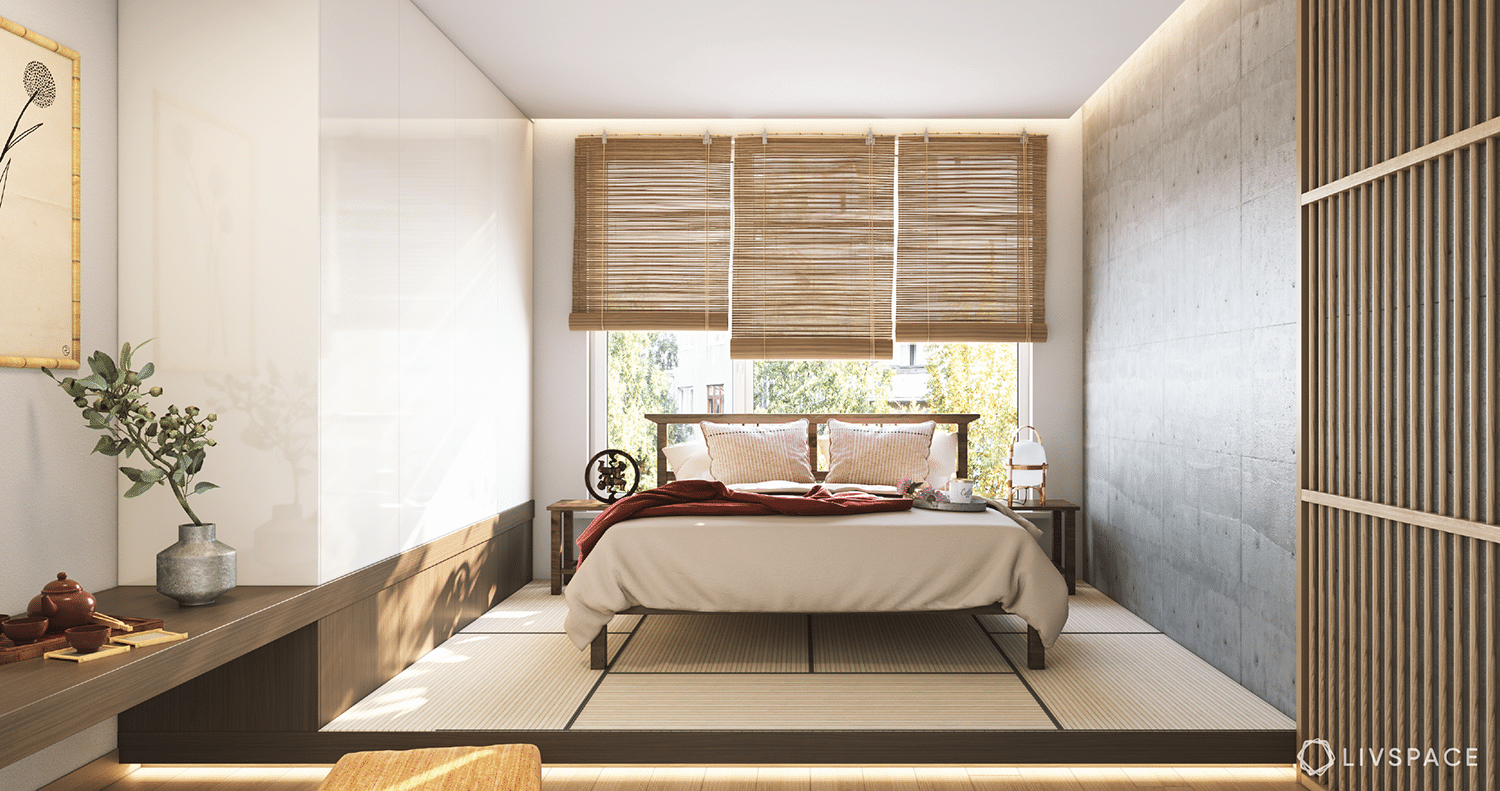
The perfect bedroom to relax and rejuvenate
— Swap curtains for bamboo blinds as a nod to sustainability
— Moreover, blinds will allow more natural light to flow into your room
— Choose a low-legged bed and a tatami mat for your floor
#3: Welcome Nature into your Home with Japandi Design
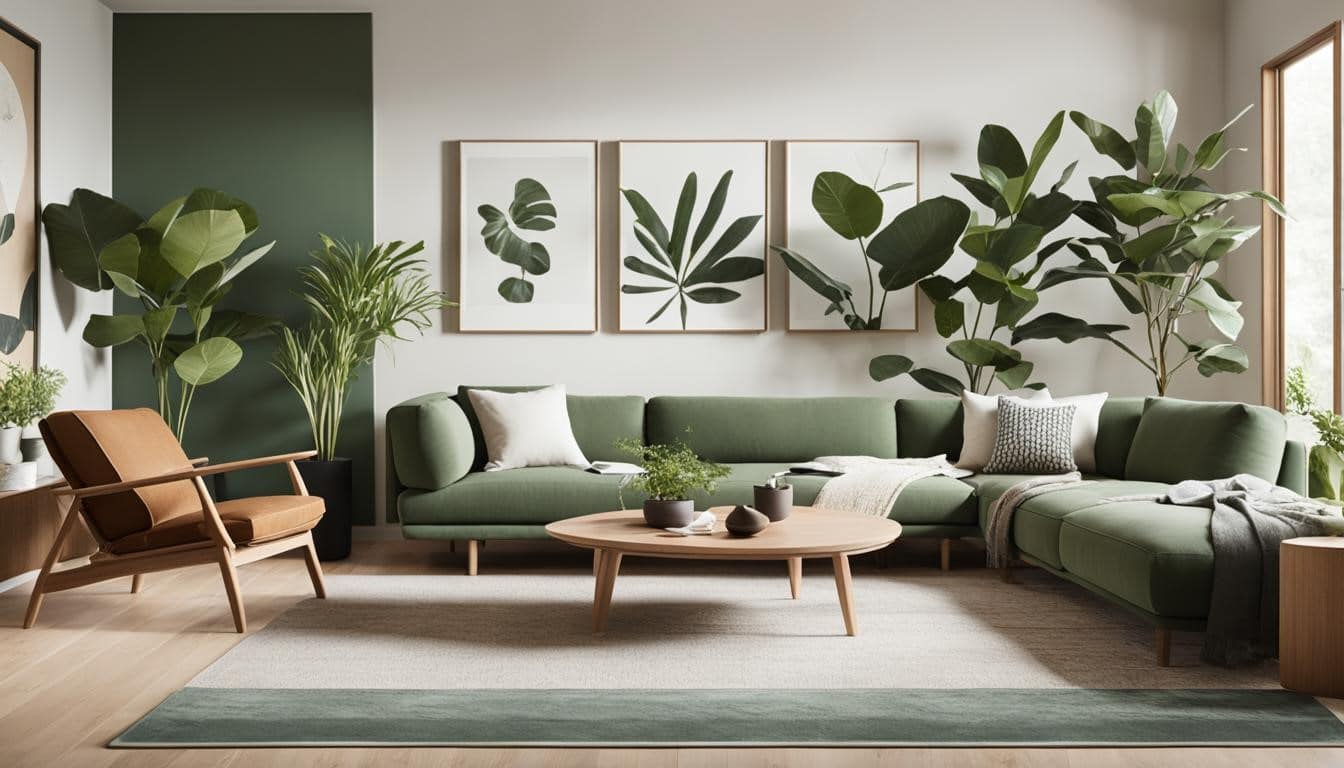
Break up the neutrals with plants
— You can also mix up the neutrals by introducing indoor plants in your home
— Hanging planters, bonsai and bamboo are good options to match the Japandi décor style.
#4: Japandi Interiors with Bare Walls**
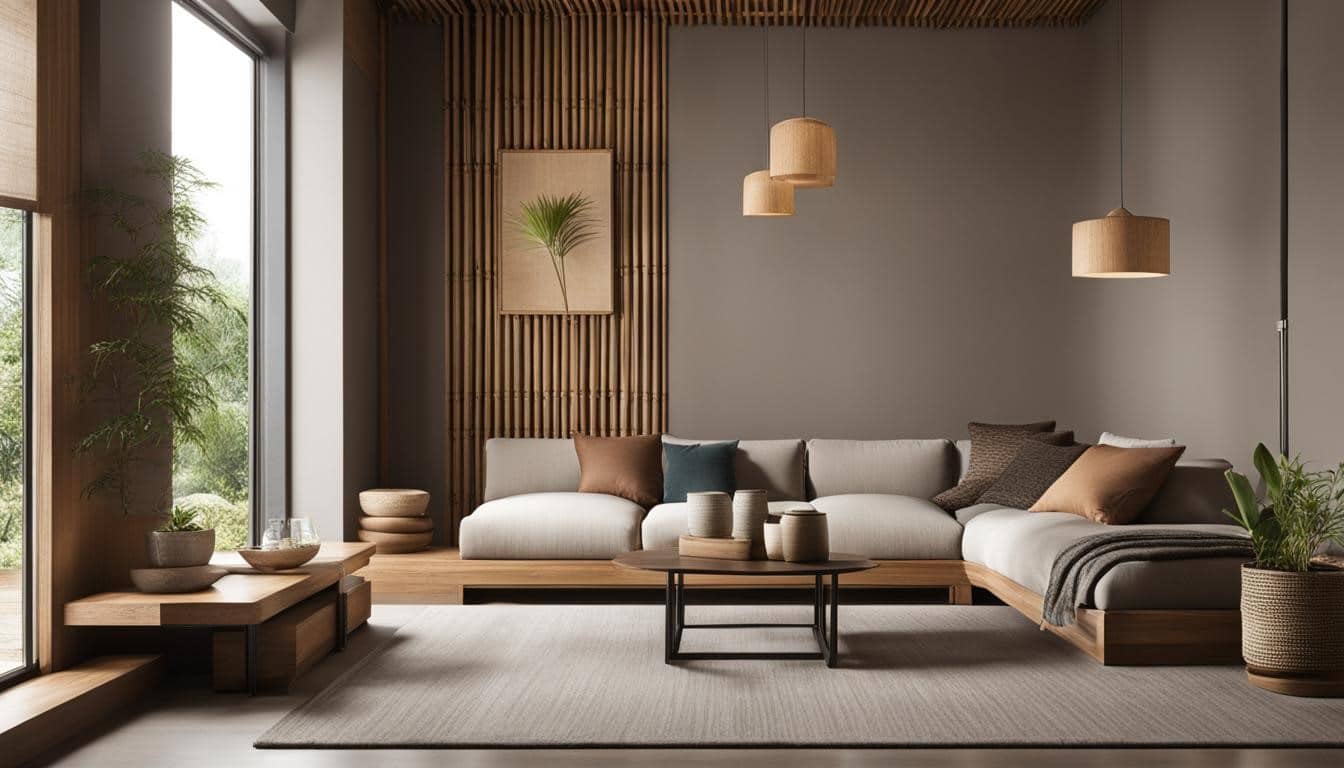
Your walls should be bare and neutral
— For a soothing vibe, opt for neutral colors like white or taupe and bare walls
— In addition, look for sleek and functional furniture
**If you’re like me and you cannot live with bare walls, the next paragraph is for you
#5: The Right Art for your Home
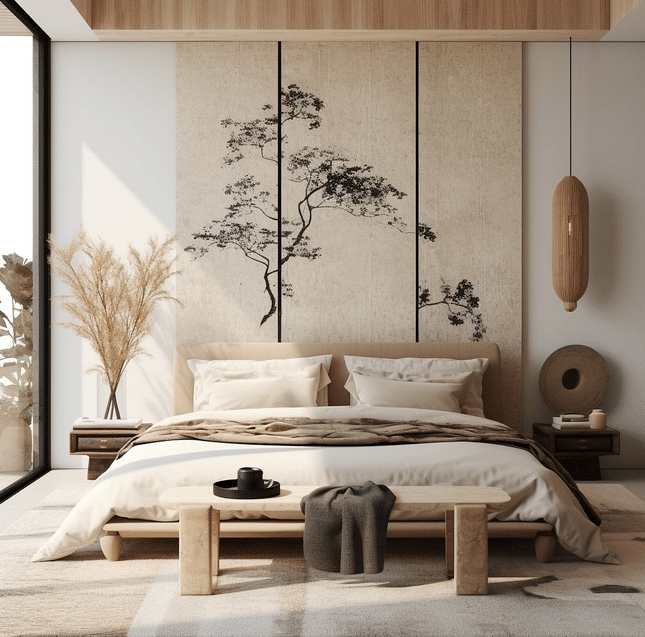
Local artists and craftsmen are important parts of this design style
— To add texture and personality, opt for artwork by local artists
— Additionally, remember to focus on local craftsmanship as that’s important for Japanese styles
#6: Declutter to Create Space
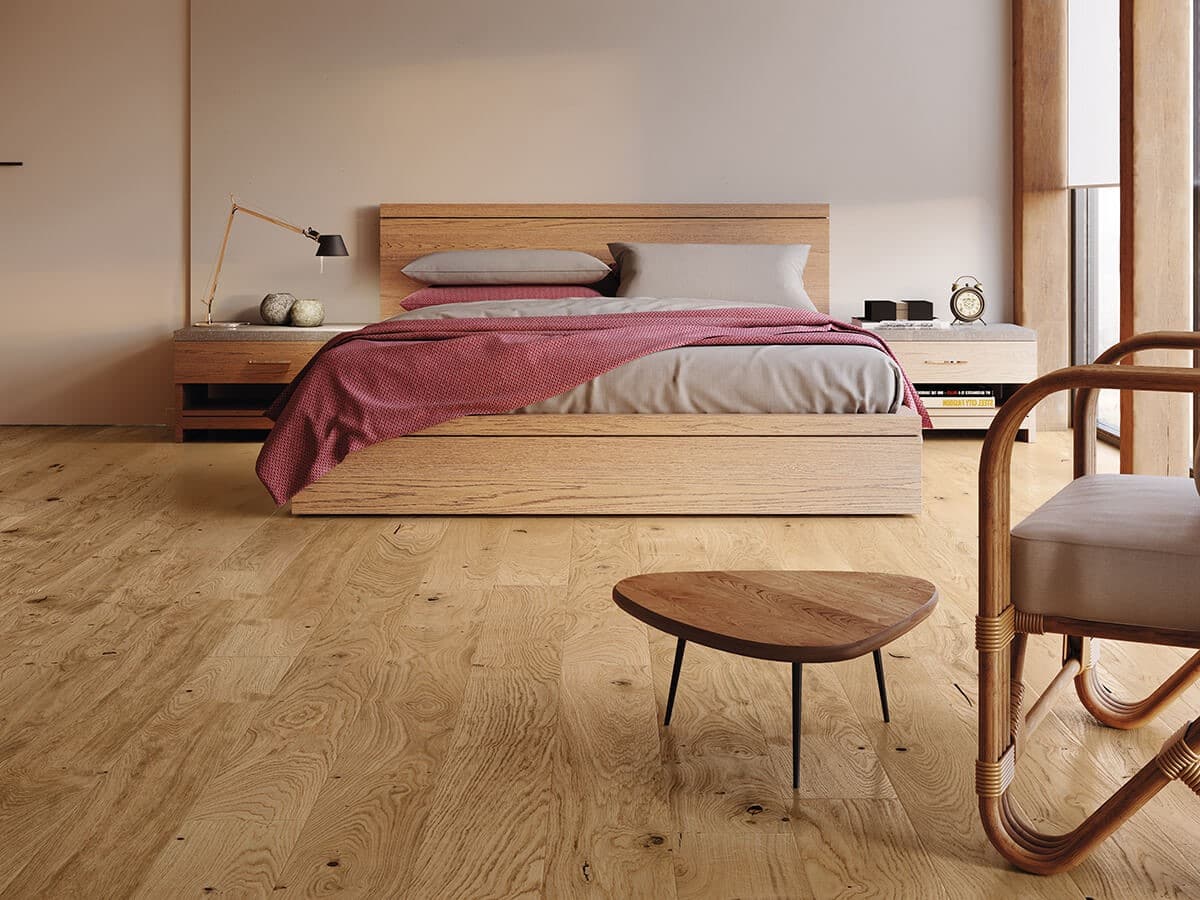
Stick to the basics
— Both Japanese and Scandinavian aesthetics focus on decluttering
— Only keep the basics and get rid of anything that you don’t need. Avoid hoarding!
#7: Contrasting Colors in Japandi Interior Design
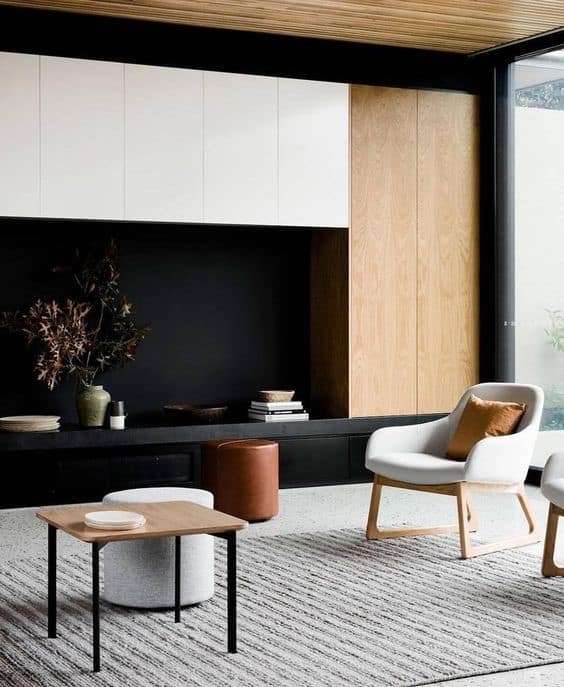
Play around with light and dark colors
— Mix up neutral colors like white, grey and black for a striking look
— In addition, Shoji window screens instead of curtains will let in natural light
Japandi vs. Wabi-Sabi Design Styles
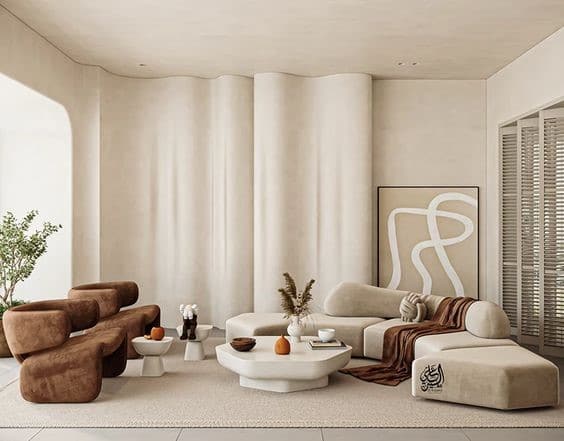
The beauty of imperfection
One of the interior design styles that originated in Japan is wabi-sabi. However, it is not the same as Japandi interior design. While Japandi home décor draws inspiration from wabi-sabi, they’re not the same. Wabi-sabi is a Japanese interior design style that focuses on imperfection, nostalgia and designing with things that hold some special meaning for you. A Japandi style interior, on the other hand, is a mix of Japanese and Scandinavian designs. So while wabi-sabi is more traditional, Japandi focuses on combining modernity with minimalism.
We are here to help you if you are inspired by any of these design styles, whether wabi-sabi, pure Scandinavian or Japandi. Give us a call today!